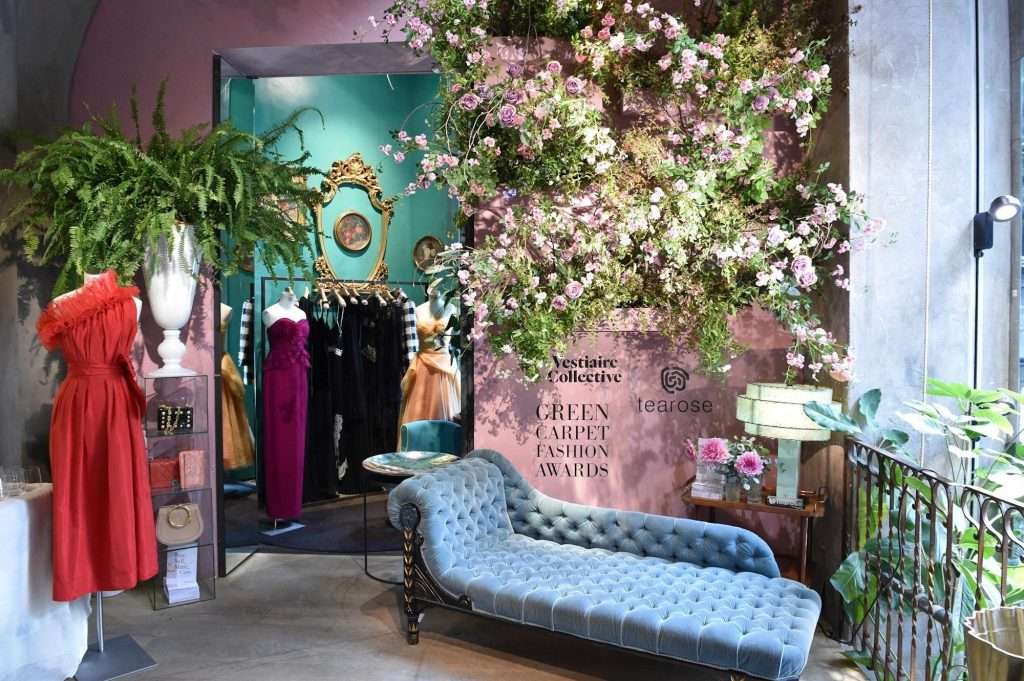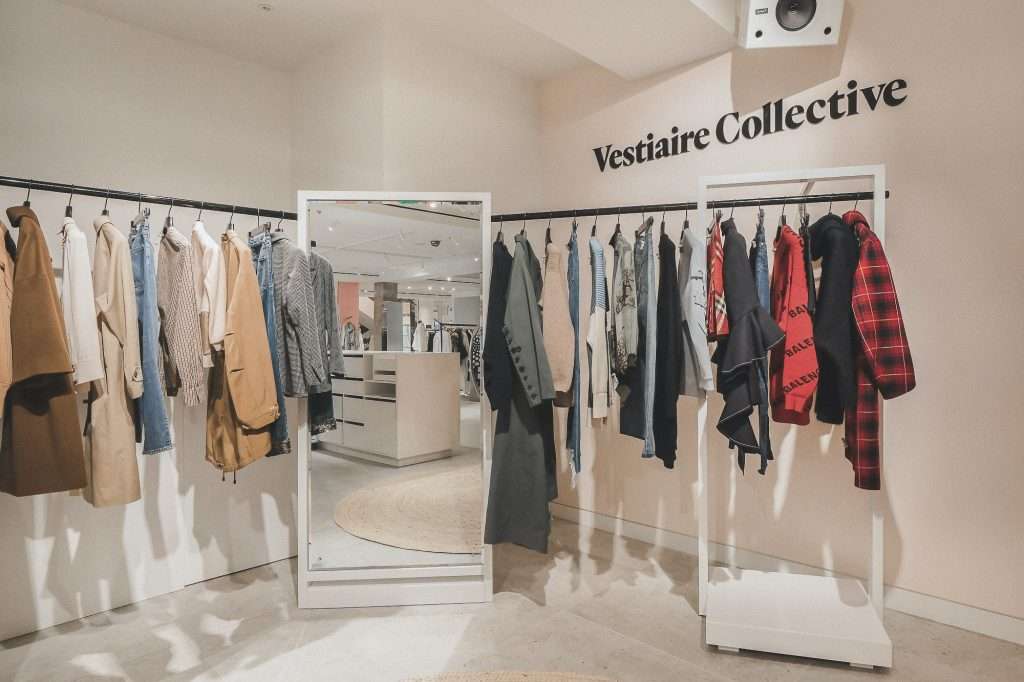French resale platform Vestiaire Collective is the first secondhand seller to achieve B Corp Certified status.
“We are incredibly proud to become the world’s first globally operating and large B Corp Certified resale platform! It’s a huge step on our way to transforming the fashion industry. Vestiaire Collective was born with the idea that we can drive change for a more sustainable future,” Fanny Moizant, co-founder and president of Vestiaire Collective, said in a statement.
While it’s the first secondhand platform to receive the status, it’s not the first apparel-based brand; eco outdoor giant Patagonia, and shoe brand Veja both have achieved B Corp status.
Certified B Corp
To achieve B Corp status, companies are evaluated on social and environmental performance, transparency, and accountability.
Vestiaire Collective said it answered more than 300 questions about the business “from our team’s working conditions to our carbon footprint,” but the company said it was worth it.
“In 2021, business must be a force for good. B Corp demonstrates that we at Vestiaire care as much for the planet as we do for our people and our profit,” Moizant said.

Of the vetting criteria, Vestiaire was particularly praised for its standards for its workers and governance. It’s urging others in the booming secondhand market to follow suit.
Vestiaire earned unicorn status when it announced it raised €178 million with a €1 billion valuation earlier this year.
Why shop secondhand?
Secondhand shopping isn’t new, but it’s becoming more popular as the fashion industry reckons with its carbon footprint.
Fashion is one of the biggest polluters on the planet: Twenty percent of water pollution comes from the treatment and dyeing of textiles. Growing fabrics, like cotton, are also problematic; cotton uses more pesticides than any other cultivated crop. Even the oft-hyped bamboo can be an emitter, depending on how it’s processed. The fashion industry uses nearly 25 percent of all of the chemicals produced worldwide, according to recent data.
Shopping secondhand keeps old clothes out of landfills and slows the production of new garments. Making new clothes puts significant pressure on natural resources and is a leading contributor of emissions.

One way peer-to-peer secondhand shopping platforms like Vestiaire Collective, ThredUp, and Depop have made resale shopping trendy is with used celebrity fashion.
Depop’s platform featured items from A-list celebrities including 2021 Grammy winner, Megan Thee Stallion. The platform also has items listed from dozens of celebrities including Grammy-nominated singer Doja Cat, and actresses Emily Ratajkowski, and Maisie Williams.
For celebrities, this is a novel way to connect with fans, especially during lockdown when their typical modes of connecting—concerts and public performances—aren’t happening. Celebrities are also using the platform as a way to connect their followers to causes they care about. Megan Thee Stallion’s recent Texas-inspired collection raised funds for the charity Let’s F Cancer, for example. Proceeds from Doja Cat’s items went to charities working to end sex trafficking.
Vestiare Collective has launched shops with “The Good Place” star Jameela Jamil, Kate Moss, Thandie Newton, and others. And with its B Corp status, it has set its sights on being a louder voice for good.
“Today, this recognition is more evidence that we can make it, Moizant said. “We are extremely honoured to join a growing and pioneering community and we hope it is only the beginning of a broader move that will trigger even more commitment among our industry and community of fashion activists.”


